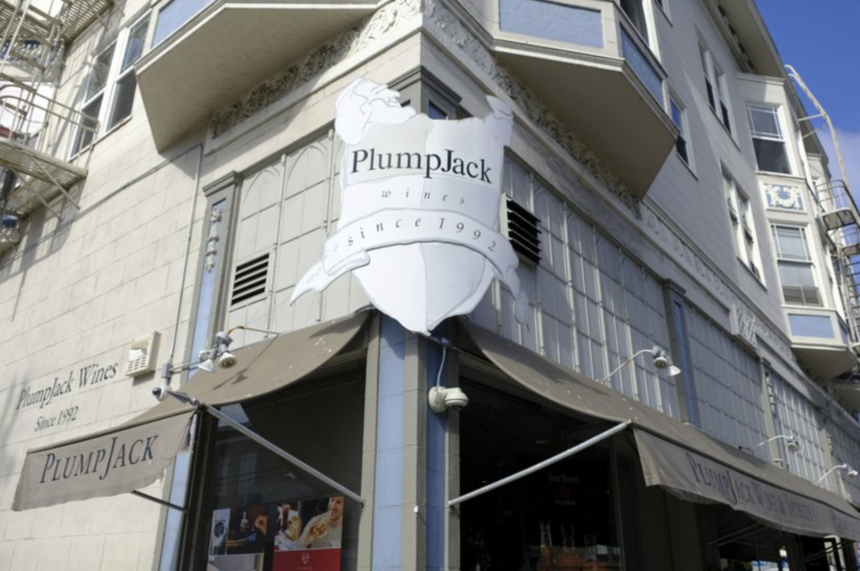Calif. governor’s companies got $3 million in relief loans

SACRAMENTO, Calif. (AP) — Companies affiliated with California Gov. Gavin Newsom received nearly $3 million in federal loans created to help small businesses survive the pandemic, more than eight times the amount originally reported, according to newly released information from the U.S. government.
Nine businesses tied to Newsom’s PlumpJack Group split the nearly $2.9 million in loans through the Small Business Administration’s Paycheck Protection Program, according to new figures released last week. The governor put his business holdings into a blind trust before he took office last year and so would not have participated in the decision to obtain the loans.
It was a surprisingly large loan, said Project On Government Oversight senior policy analyst Sean Moulton. The nonpartisan independent watchdog is tracking $1.6 trillion in overall pandemic relief spending, with the Paycheck Protection Program the largest single program.
“It seems to be a small business but it got a lot of money. I’m not sure how the company justifies taking that much money when there were a lot of companies looking to get assistance,” Moulton said. “You hope they’re using it wisely because there’s an opportunity cost there — that money didn’t get used for another small business that may be out of business now.”
He said Newsom “certainly runs the risk of encountering some public perception problems” over the loans.
That is not something the governor needs now. He already faces criticism for sending his children to private schools for classroom learning as most public schools remain shuttered and for dining in violation of his own rules with 10 lobbyists and others at the pricey French Laundry restaurant in Napa in early November.
PlumpJack spokesman Jeff Nead said the money was for 358 employees spread across all the affiliated businesses.
Like many businesses imperiled by the pandemic, the companies used the money “to protect our workers and keep them employed.” He said the group is operating within federal guidelines and the funds “have been critical in keeping our staff employed and continuing our operations.”
One PlumpJack company, Villa Encinal Partners Limited Partnership, received the largest loan, $918,720, yet lists just 14 employees. For the loan to be forgiven, the partnership must have spent 60% of the money on three months’ worth of wages, which pencils out to annual salaries approaching $160,000 per employee.
Dividing 60% of the total among 358 employees brings a much smaller $4,800 per employee.
A second company received $680,000 and another more than $500,000. The tally was first reported by ABC7 News in San Francisco.
It’s not clear if the company or its affiliates will seek to have the loan forgiven, if they spent that much on salaries, or if they overstretched on their loan applications in the frantic early months of the program, Moulton said, in part because federal reporting requirements are so lax.
“The larger loans, I’ve always struggled to figure out how they fit into the overall idea behind the Paycheck Protection Program,” he said. “It was all supposed to be about small businesses, it was supposed to be about keeping people employed, keeping their paychecks coming, and yet we were giving out these millions and millions of dollars.”
Newsom has been criticized by many in the business community for his aggressive shutdown orders. He in turn repeatedly has said he is a proud small businessman and entrepreneur and understands the hopes and dreams tied to business ownership and the anger over having the government restrict or forbid operations.
Newsom developed PlumpJack after he helped found it as a wine and spirits shop in San Francisco in 1992.
“Before taking office, the Governor transferred title and control of the businesses he founded to a blind trust, a step that goes beyond anything required by law,” Jesse Melgar, Newsom’s communications director, wrote without elaborating.
An Associated Press review of the SBA’s initial loan data in July found the governors of at least eight states and both political parties were among political leaders who had ties to companies that received loans through the program.
PlumpJack Management Group LLC, Newsom’s winery and hospitality company, then reported receiving a loan worth $150,000 to $350,000, and reported retaining 14 jobs thanks to the loan. The company is part of a portfolio of brands that include a resort hotel at the Squaw Valley ski resort, five restaurants and bars, four Napa Valley wineries, a sports retailer and more.
Private banks administered the loans to speed their distribution, which raises its own questions, he said.
“An organization in part founded by the governor, they might be given special preferential treatment — not because the governor asked for it, but because of all the connections that exist,” Moulton said.
That’s in part why he objects to proposals in Congress to simply forgive the loans, no matter how they were used.
“This is a useful case to focus on because of some of the high-profile people involved, but I think this is playing out a thousand-fold across the country,” Moulton said. “There are a lot of companies that got money that if you look close enough at it may not make sense with the employment that they have.”